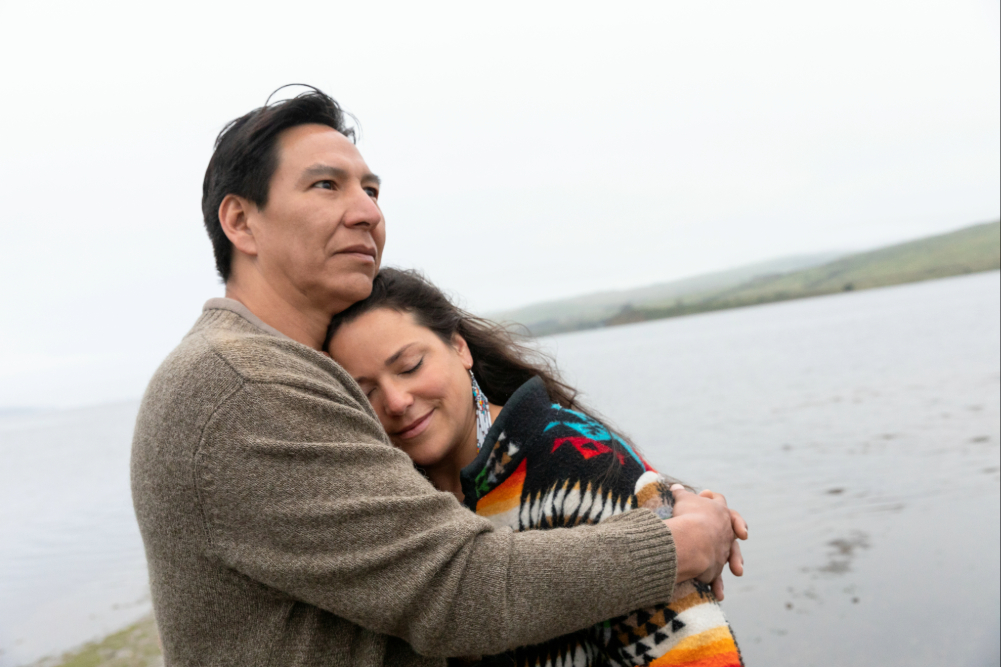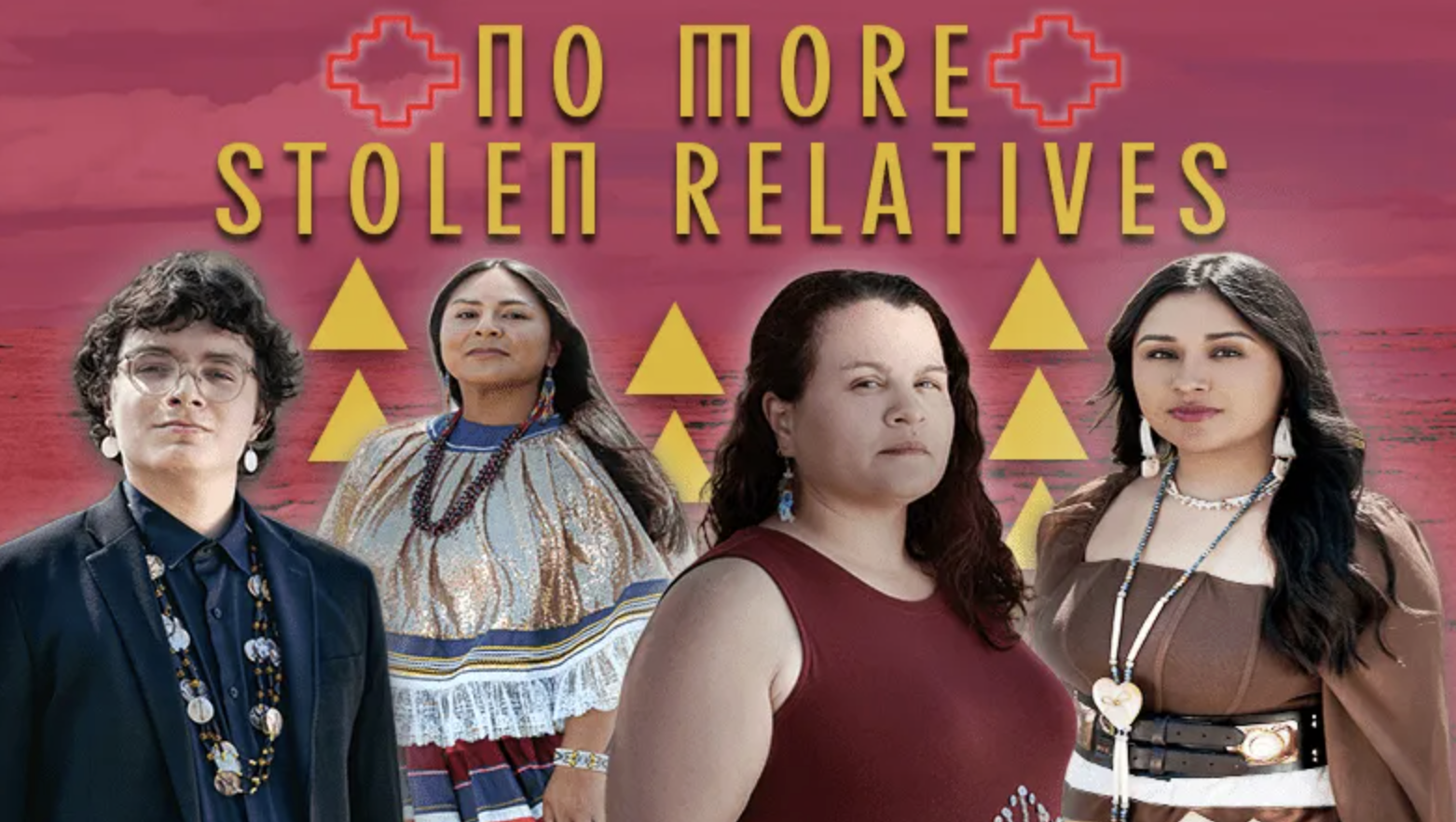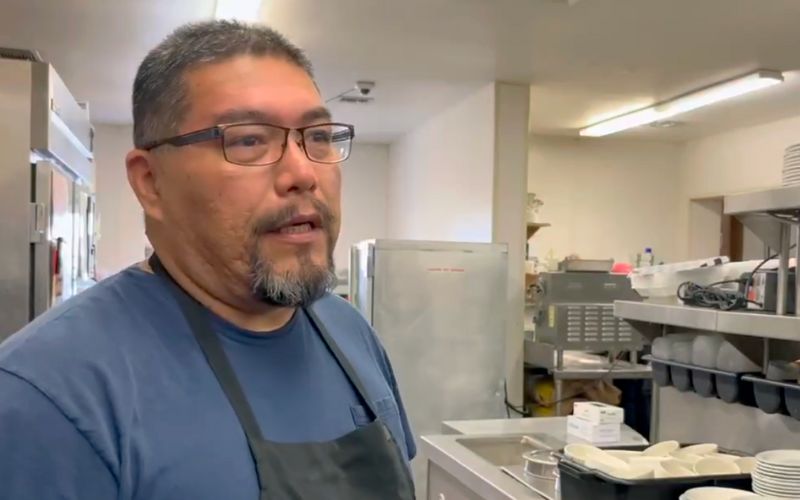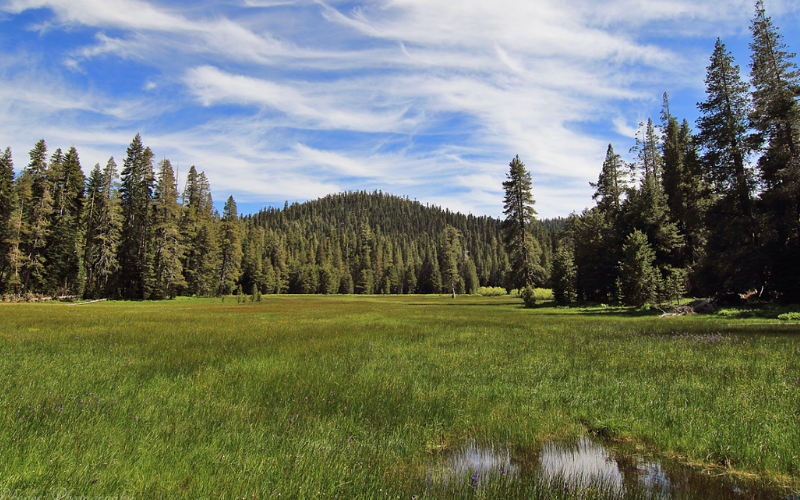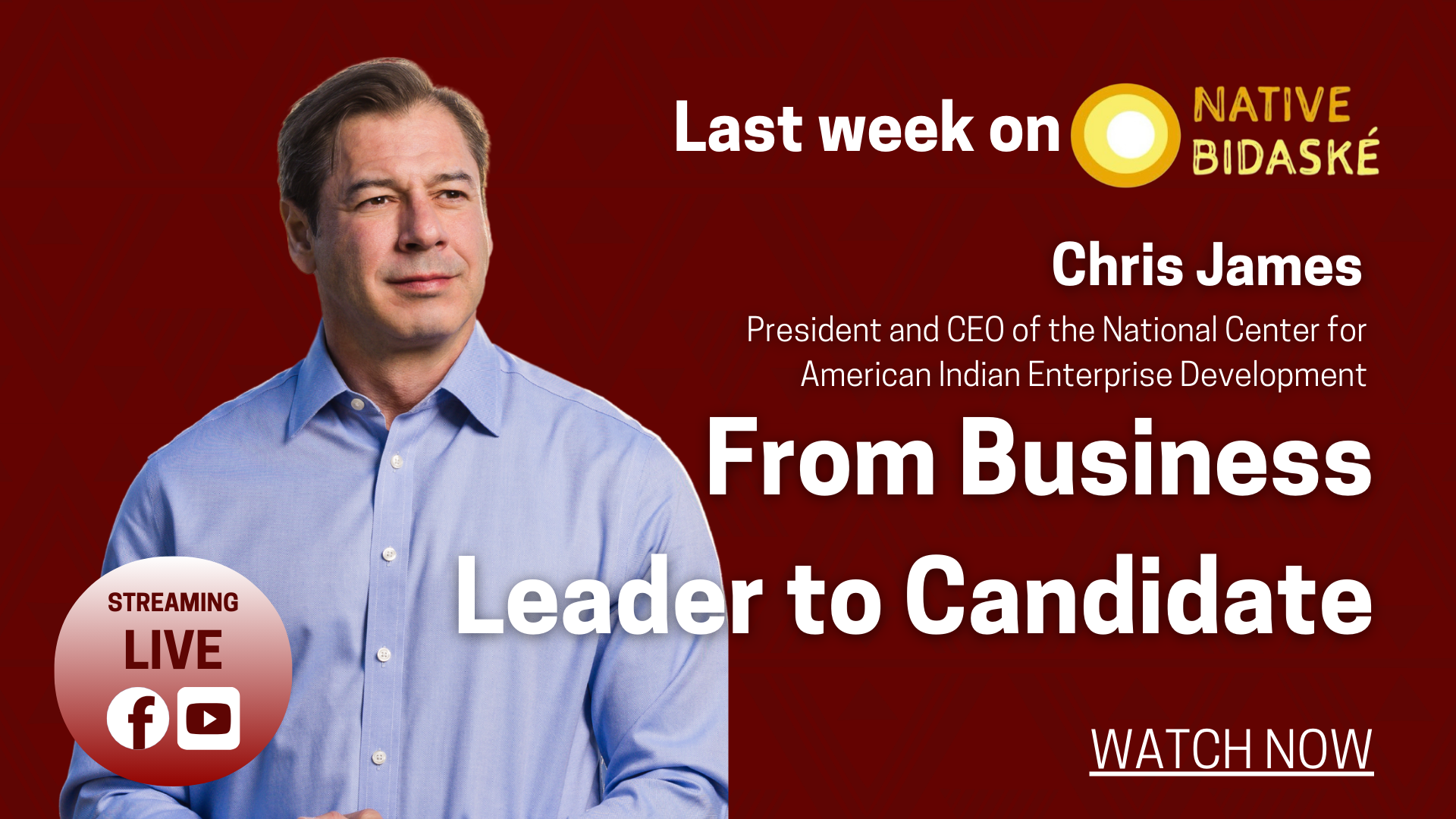
- Details
- By Native StoryLab
On last week’s episode of Native Bidaské, host Levi Rickert sat down with Chris James, President and CEO of the National Center for American Indian Enterprise Development, to talk about his recent decision to run for Congress.
Rickert opened by noting James’ record of growth at the National Center since 2017, including nearly doubling revenue and expanding its client base from 200 to more than 1,000 annually. James, he said, is now aiming to bring that leadership to Washington.
James told viewers, “I grew up in Cherokee, North Carolina. My family had small businesses on the reservation. My father was a farmer, and we had a Christmas tree farm. So I grew up in that environment of rural North Carolina. And really, all those values taught me the value of hard work, the value of taking care of each other, and the value of heritage. And I really want to take those same values to Washington.”
He emphasized his frustration with partisan gridlock: “We are so polarized right now in our society. And I think I'm frustrated, just like many Americans and definitely Arizonans. When they're so polarized, nothing gets done. And that's really one of my frustrations when I look at Washington and see how little gets done, and it’s more about politics instead of actually supporting the American people.”
As a descendant of the Cherokee Nation, James said his heritage shapes his priorities. “I really believe in tribal sovereignty. I mean, I have built my whole career on protecting our communities, making sure that we have the resources that we need, that we also have economic development opportunities. For the past 15 years, I've probably helped over a billion dollars of different types of investment into our communities. … What I would take to Washington, D.C., is I have that knowledge, and I've been advocating for our communities for a very long time.”
Rickert pointed out that Arizona’s 5th District leans Republican, and asked how James planned to connect with voters across the spectrum. James replied, “I have this bipartisan mentality, and I'm respected on all sides. What people really want to see is they want people in Congress that share their values and goals, like investing in small business, upgrading broadband, supporting infrastructure, and really supporting even our first responders. … I'm going to be that person to represent everybody. I'm going to have a grassroots campaign. I'm going to be out in the community, and I'm going to talk to as many people as possible—not trying to change anyone’s view, but listen.”
James also pointed to his long record of advocacy and connections on Capitol Hill. “For the past almost 20 years, I have been advocating up on the Hill for our communities. … At the National Center, for the past eight years, probably once a quarter, I'm up in Washington, D.C., meeting with many congressional folks, talking about the importance of small business growth and government contracting. I have access. I have the ability to pick up the phone and make a call. So when I'm actually in Congress, I'll be able to network that very quickly.”
Asked why people in Arizona’s 5th District should vote for him, James concluded: “I'm running because I believe our community deserves representation who actually get things done, not just sit on the sidelines. I'm a husband. I'm a father. I lived in Gilbert for a long time, and I see how hard-working families struggle with what's going on in our country—struggle with the rising cost, struggle with health care, struggle with even putting our kids through school. … I believe in holding myself accountable, but most importantly, I believe in holding our leadership accountable. And that's something that I don't think happens enough in Washington.”
James’ appearance on Native Bidaské marks an important moment in his campaign, highlighting both his business background and his vision for bringing bipartisan, community-focused leadership to Congress.
Watch the full episode here:
Help us defend tribal sovereignty.
At Native News Online, our mission is rooted in telling the stories that strengthen sovereignty and uplift Indigenous voices — not just at year’s end, but every single day.
Because of your generosity last year, we were able to keep our reporters on the ground in tribal communities, at national gatherings and in the halls of Congress — covering the issues that matter most to Indian Country: sovereignty, culture, education, health and economic opportunity.
That support sustained us through a tough year in 2025. Now, as we look to the year ahead, we need your help right now to ensure warrior journalism remains strong — reporting that defends tribal sovereignty, amplifies Native truth, and holds power accountable.
 The stakes couldn't be higher. Your support keeps Native voices heard, Native stories told and Native sovereignty defended.
The stakes couldn't be higher. Your support keeps Native voices heard, Native stories told and Native sovereignty defended.
Stand with Warrior Journalism today.
Levi Rickert (Potawatomi), Editor & Publisher



